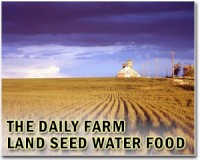 |
Montreal, Canada (SPX) Jan 31, 2011 Not all trout are created equal. Those swimming up the streams of British Columbia might resemble their cousins from Quebec, yet their genetic makeup is regionally affected and has an impact on how they reproduce, grow and react to environmental stressors. Such regional variance makes transplanting fish species - to bolster dwindling populations - tricky business. These are some of the findings of a compelling review published in Heredity, a journal from the Nature Publishing Group, which examined the adaptability of trout, salmon, charr, whitefishes and graylings across North America and Europe. The investigation, which compared 93 wild and aquaculture fish populations, was led by Concordia University in collaboration with Simon Fraser University, the Universite Laval and the University of British Columbia in Canada and Aarhus University in Denmark. "We can't treat a species as something that is homogeneous throughout its range. Fish of the same kind are distinct, whether they grow in lakes, ponds or streams," says first author Dylan J. Fraser, a Concordia University biology professor. "A salmon from Quebec isn't the same as a salmon from the Atlantic provinces or an individual of the same species from Europe," he continues. "There's considerable variation within species. That genetic diversity can allow a specific type of fish to thrive in one region - to better adapt to stressors such as climate change or habitat changes - while fish stocks of the same species introduced from another region can dwindle." Economic implications Since trout, salmon, charr, whitefishes and graylings are important for commercial fishing, recreational fishing and aquaculture industries, Fraser says this review has economic implications for business or conservation programs looking to transplant species into new habitats for a variety of purposes. "Salmon from Quebec, for instance, should not be reintroduced into British Columbia streams," says Fraser. "For fish to successfully adapt to a new environment, they should be selected by geographic proximity." Natural selection is what drives local adaptation of fish stocks. "Natural selection may have favored faster growth in certain populations," he says. "If these same populations can also deal with higher temperatures, they may be better suited for new aquaculture initiatives in the face of climate change. This is another benefit of considering local adaptation." The research team examined other factors that caused fish stocks to thrive or abate: environmental factors, temperature, geology, water chemistry, migration distance, pathogens, parasites, prey and predators. The result? "Climate change will have a profound effect on species," says Fraser. "And understanding why local populations outperform foreign populations in their home environment may help to predict which populations within species are most likely to persist in the future.'"
Share This Article With Planet Earth
Related Links Concordia University Farming Today - Suppliers and Technology
 Slowly but surely, Bordeaux vineyards go organic
Slowly but surely, Bordeaux vineyards go organicBordeaux, France (AFP) Jan 30, 2011 Two historical Bordeaux wine estates have gone green, breaking a long resistance to organic viticulture amongst the region's elite producers. As in other world-class regions, an organic approach is a weapon in their battle for sustainability. "Still in 2011, there are people who do not trust in the fact that it is possible to grow organic in Bordeaux," said Jean Michel Comme, manager of ... read more |
|
| The content herein, unless otherwise known to be public domain, are Copyright 1995-2010 - SpaceDaily. AFP and UPI Wire Stories are copyright Agence France-Presse and United Press International. ESA Portal Reports are copyright European Space Agency. All NASA sourced material is public domain. Additional copyrights may apply in whole or part to other bona fide parties. Advertising does not imply endorsement,agreement or approval of any opinions, statements or information provided by SpaceDaily on any Web page published or hosted by SpaceDaily. Privacy Statement |